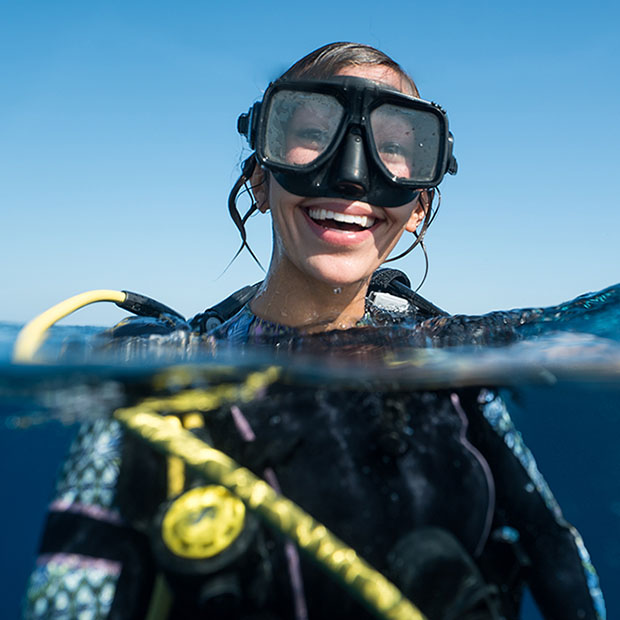Swimmers and Divers, Watch Those Teeth!

Anyone who swims or scuba dives frequently could encounter some unique dental issues if they aren’t careful.
Let’s take a closer look at the big ones.
Chlorine’s Effect on Teeth
The longer teeth are exposed to acidic chlorine ions in pool water, the more likely they are to develop brown or yellow stains. These are called swimmer’s calculus. As good as chlorine is at keeping a public pool sanitary for all swimmers, it can become acidic enough to affect tooth enamel. Swimmers can minimize this effect by swimming with their mouths closed as much as possible and drinking plenty of water to rinse traces of pool water off of their teeth.
Scuba Divers With Dental Work
Scuba divers have a different set of concerns, particularly “tooth squeeze” or barodontalgia. That feeling of pressure building up in the ears when diving to the bottom of the pool is very similar to what happens inside each tooth, especially teeth with untreated cavities or ineffective dental treatment. The pressure can build to such a degree that it can even fracture teeth, which is why we strongly encourage divers to visit the dentist before starting a new diving season.
Divers often also deal with ill-fitting scuba mouthpieces, which can lead to jaw strain and even TMD symptoms. We recommend getting a custom-fitted mouthpiece to protect the teeth and jaws.
Still Wondering About Dental Health and Water Activities?
If you have any lingering questions about maintaining your dental health while enjoying water activities, don’t hesitate to reach out! Remember, besides the fun and splash, wet surfaces around pools pose a slip hazard that could lead to dental injuries. Stay cautious and protect your smile while you dive into summer fun!
